#alice waters
Explore tagged Tumblr posts
Text
RANDOM MUSING: For anyone who might be a "foodie."
This week I bought some used books at my local public library resale corner for $1 each. One is a soft cover version of Alice Waters' seminal Chez Panisse cookbook. I already have a hardback version, but want to replace it with an easier to use softback. I didn't really look at it when I picked it up at the library. When I got home, I opened it up to flip through. On the flyleaf I see:
For Ron. Alice Waters.
Handwritten in big black Sharpie.
LOL. So, for $1 I got a Alice Waters signed copy of Chez Panisse. Thank you, public library.
26 notes
·
View notes
Text







https://x.com/RedpillDrifter/status/1895591490384248995?t=5rDERB286LndWIsREBm8lw&s=19


So, I meant what I said to your little Freemason lackey. He is now on the list. Thanks for also giving me an excuse to post the Edible Schoolyard thread, due to the Pedo Symbol. You had some real, fucking nerve, Adam Ackland, having your plant compare Benedict to Andrew Tate.
I love his gig; pretend to be on the currently-in-power side, dispensing reasonable advice, all while getting to bash the Black community; pointing out they're many, many problems, while also throwing in Esoteric-laced Hip Hop.
The clinchers, for SURE, are Aquarius being signed to Apple, and your ratchet BBC Sherlock troll, immediately liking an old dig at Benedict's character, RIGHT after I confronted your little slave. What's the matter, you mangy, red-headed piece of shite? Money problems after being so determined to put Ben in that schlock, setting him up to be compared to Cillian Murphy, for whom, conveniently most people would never actually SEE his performance. What does that matter, as long as Ben is doing a piece he already did, also conveniently forgetting that that's what Eddie Redmayne did. Bonus points for laundering money to your Trafficking network.
All of you, but especially you, Adam 'I'm Shit' Ackland, really need to get a fucking life. Your problems are of your own, damn making.
COPE, motherfucker.
#Aquarius Waive#Apple Hip Hop Artist#YouTuber#Epstein Network#Esoteric Lyrics#Targeted Harassment On Order#BBC Sherlock Trolls#Sussex University#The BBC#USAID Welfare Queens#Adam Ackland#SunnyMarch#Dangerous Thug#Scientology#Andrew Tate#Same Side#The Edible Schoolyard#Alice Waters#Chef Andres#Redpill Drifter#Twitter#Apple Music#Black Americans#Benadryl#Pfizer
5 notes
·
View notes
Text
Alice Waters – Ne Yersek Oyuz (2025)
Alice Waters’ın ‘Ne Yersek Oyuz: Bir ‘Slow Food’ Manifestosu” (‘We Are What We Eat: A Slow Food Manifesto’) adlı eseri, yemek yeme alışkanlıklarımızın ve beslenme şeklimizin sadece sağlığımızı değil, aynı zamanda kültürümüzü, toplumu ve gezegenimizi de nasıl etkilediğini derinlemesine inceliyor. Waters, hızlı ve endüstriyel gıda üretiminin yarattığı sorunlara dikkat çekerek, “slow food”…

View On WordPress
#2025#Alfa Yayınları#Alice Waters#Bir ‘Slow Food’ Manifestosu#Mehmet Gürsel#Ne Yersek Oyuz#Slow Food
0 notes
Text
Step into Meghan's world with 'With Love, Meghan'; Trailer Out Now!
Step into Meghan's world with 'With Love, Meghan' - cooking, gardening, and joy! Watch the trailer now on Netflix. Premieres Jan 15!
Check out the trailer right here: https://www.theomenmedia.com/post/meghan-markle-s-with-love-meghan-a-glimpse-into-the-duchess-s-new-netflix-lifestyle-series

#Meghan Markle#Netflix#With Love Meghan#Lifestyle Series#Duchess Of Sussex#Cooking Show#Mindy Kaling#Roy Choi#Alice Waters
0 notes
Text
Ladies of the Pen and the Cookpot: Elizabeth David
Foxed, spotted, acid-rich, the paper crackles under the slightest touch of my hands. The book’s an old Penguin paperback, worth only 74 cents on Amazon.com. As I turn the pages of French Country Cooking (1951), I vaguely recall a comment I once read, written by food activist and restaurateur Alice Waters in her book, The Chez Panisse Menu Cookbook (p. x), where she talked about how she got…
0 notes
Text
ALICE WATERS // CHEF
“She is an American chef, restaurateur, and author. In 1971, she opened Chez Panisse, a restaurant in Berkeley, California, famous for its role in creating the farm-to-table movement and for pioneering California cuisine. She is a national public policy advocate for universal access to healthy, organic foods. Her influence in the fields of organic foods and nutrition inspired Michelle Obama's White House organic vegetable garden program.”


0 notes
Text
Alice Waters and Fanny Singer: Northern California Legacy Spotlight
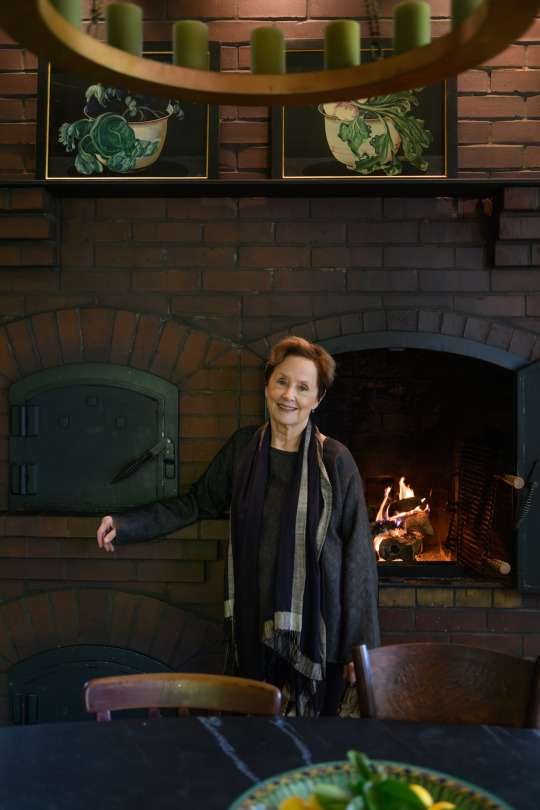
Alice Waters needs no introduction but we'll introduce her anyway. In 1971, back from travels in the UK, France and Turkey, and channeling the counterculture, she opened Chez Panisse in Berkeley. The restaurant quickly became an icon of the farm-to-table movement with its menu of seasonal ingredients sourced directly from local farmers. Waters has remained at its forefront, expanding the movement through projects like Edible Schoolyard and the Chez Panisse Foundation. Despite her global success, Waters is for us one of Northern California’s true visionaries of the local, and it is hard to imagine our regional cuisine without her.
We spoke with Alice alongside her daughter Fanny Singer, an accomplished art critic, writer, new mom, and founder of Permanent Collection, a line of handcrafted homeware that tells the stories of the people who make each piece.
Studio AHEAD: How do you sit?
Alice Waters: I sit at the table and I like to sit in a chair. I love to be in front of the fireplace. It’s very important to be seated at a table. It can be oval or round. It doesn’t matter as long as everybody’s there together.
Fanny Singer: Sitting is something I either do a lot of or very little depending on the day. I have a one-and-a-half-year-old and spend a lot of time cajoling her at dinnertime into her seat. It’s become a new topic of conversation: How do we sit? How do we actually eat? How do we commune over this meal, because that was a very significant part of my childhood.
But the last year-and-a-half of having a baby, you’re standing eating out of the refrigerator, and not taking a moment to sit because you’re in between things. Recently we’ve made a real point to sit together with [Fanny’s daughter] Cecily, who loves to eat thankfully. We sit on either side of her and light candles, which she loves. She goes “candles, candles, candles” if we forget. So after a year-and-a-half of very frenzied never sitting down for a proper meal, we’ve reintroduced a real sense of ritual in how we wind down from our day and enjoy this moment of communal eating together.
Studio AHEAD: I love that both of you have fire—Alice with the fireplace and Fanny with the candles. It’s warmth. Fire always has that effect of calming.
Alice: I light candles, too! It’s the beauty of the light. When you light a candle at the table it’s like a ritual. You all are there. And in candlelight everyone looks good.
Studio AHEAD: Do ideas of space—of people being together in a room, whether at one of your restaurants or at home—influence your approach to cooking? To laying out a menu?
Alice: I love the connection between the kitchen and the dining room. It means that the people who are dining [at Chez Panisse] can see where their food comes from, and they can watch if they want to go into the kitchen. Just take a peek before they sit down. They're welcome. It’s not like you’re trying to hide something. There’s a big fireplace in the kitchen, so most people do want to take a look.
Fanny: I’m so fascinated by that question in terms of thinking about it relative to what is cooked. Permanent Collection recently launched a new project called the Platter Project. Most of the products that we make are kept in stock. We reissue them. The idea is to keep good design readily available. But we thought it would be nice to work in a more limited-edition capacity with artists and artisans to make something that stood apart from a design perspective or just felt different.
When I was thinking about the form that this idea could take, the platter was the only idea that made sense. There is something about that shape, generally oval or circular or round, that has this sense of generosity and compatibility with food. It’s the way we plate and the way that plates then convey accessibility: a round plate can be reached into and served out of from every side. There's always a family-style relationship to service and dining in our families and also at Chez Panisse.
I mean even the downstairs, which is more formal, doesn't feel like there's not a permeability. There’s an invitation to taste and share that’s always been the philosophy when I cook, too. My tables and those spaces in which I've cooked have varied widely over the course of my life, from graduate school kitchens—tiny, fluorescently lit spaces that my mom suffered through visits to, but always brought candles—to the home that I live in now in Los Angeles. I feel like platters and those shapes that we bring to the table are transcendent. There’s always a beauty to be found in how we bring food to the table.
Alice: I always love a big bowl of usually a fruit in the middle of the table. Whatever is in season. It’s full of oranges right now, apples. You’re probably going to eat some of it at some point but it’s so nice to see something beautiful when you sit down.
Studio AHEAD: I love at Chez Panisse you have the copper plate with the fruit for dessert. It’s an invitation to sharing. It’s changing boundaries.
We recently did an interview with Nobuto Suga who talked about different trees suggesting different objects to make with them and being true to the local wood. Fanny, I think this relates to Permanent Collection with your focus on the people who make what you sell.
Fanny: Absolutely. It was the raison d'etre of what we do: to bring the people who craft the things that we make into the foreground. It’s what distinguishes not just Permanent Collection, but any products that are artisanally produced and not mass manufactured. It’s evidence of the hand that makes the things.
The Japanese ceramicist who makes our beautiful green ceramic plates… the plates are immaculate, but there's always some slight difference. There's not a sense of them being pressed into a mold by a machine and turned out in perfect uniformity.
It’s the wabi sabi approach to setting the table and thinking about the things that you're putting into your mouth and the context in which they are delivered to you—the ethos around production for us absolutely stems from that. You want to understand the hand that's behind the carrots as much as you want to know the story of the hand behind the dishes.
Alice: Of course, the color of the dishes is always important to me. What I'm putting on the plate is enhanced by the color of the plate. It’s great to have all different shapes and cups. I like those charming irregularities.
Fanny: That’s always been the defining philosophy of Chez Panisse: that very, very little needs to happen on the culinary side of things if what you're cooking with has been grown by people who are working in concert with nature, and that that connection between the people who grow the food and the natural world is something that you can taste, becomes manifest on the plate.
Studio AHEAD: Fanny, you have a PhD in art history. Has this guided how you choose which craftspeople to work with? The sculptural quality of the pieces is undeniable. I'm also curious about the name Permanent Collection, because so much of what the farm to table movement pays attention to is seasons. It's the opposite of permanent.
Fanny: I think I would quarrel with that or at least say there isn’t an exact one-to-one correlation in terms of how we think of the permanence of what we have on the table versus the perennial or the always changing nature of nature and agriculture.
There’s a deep sustainability infused in both, to have things that are heirloom quality that will last forever in your home. Objects that can be passed down from generation to generation are truly in tune with nature in the same way that tending the land and caring for the land displays that same respect and reverence for not wasting, not extracting totally.
That said, how could my PhD not play into it? I mean, I spent the better part of my professional life thinking about art and writing about it. Not just in my PhD, but also as an arts critic and culture reporter. It's part of what drew Mariah Nielson and I to one another. What first started Permanent Collection was this idea that we had really honed our sensibility and also sensitivity to what makes good design and good art. There was something in all that cumulative time of observing and learning that gave us maybe not a talent per se but an openness and an ability to discern what makes something feel like it might be timeless or it might resist trends or fads. That’s where the permanent in Permanent Collection comes in. It was meant to echo that ethos that governs how things are brought into the permanent collection of museums.
They have to stand. They have to prove they will stand the test of time and that they will be good examples of design at a certain time. They will teach us about what people cared about in that moment.
Alice: I think about what I’m using in my everyday life and people think that there are some things that are too precious to use. You put them in a cabinet over there, you never drink out of those beautiful glasses or one of them might break. I just feel like it's such a shame to not remember the person who gave it to you.
I'm just holding this sterling spoon. It was given to me by a friend in Ireland, and every time I use it, I think about her. The same way with my cafe au lait bowls; they're all different, but they come to me at different times in my life from different people. They always bring me a kind of sense of comfort and connection. I love that.
I think what Fanny's doing with Permanent Collection is helping to make that available to people in their everyday lives: the colors that they choose… to bring that beauty back to the table.
Studio AHEAD: Can you share a memory you have with a specific kitchen tool?
Alice: I think it’s a mortar and pestle for me because I make, every day probably, a vinaigrette. I always take a little bit of garlic and use that Japanese mortar and pestle that's grooved. Then I put my vinegar in, let it marry, calm the garlic down.
Fanny: Of course mine is the same tool. We made a mortar and pestle called Alice's Mortar and Pestle, which was an homage to the ones that were ever present in my mother's kitchen. The one that we make for Permanent Collection is made by a wonderful potter in Northern California called Colleen Hennessey.
I make salad dressing in it on a daily basis. It is also a tool that has this relationship to the huge mortar and pestle of Lulu Peyraud at Domaine Tempier who is my mom's mentor and a kind of surrogate grandmother to me. She used her mortar and pestle every day, too.
It was a much more rustic, almost molcajete-looking mortar and pestle, and she would use it to make aioli. She would pound the garlic and then bring the whisk. I think she would use the old school technique of whisking the olive oil with a little piece of potato on the end of a fork. [Alice laughs.] At least I remember seeing her doing that when I was little. There were so many other sauces that she would make in there, whether it was pounded anchovies or black olive tapenade. Or the monkfish liver, bready, aioli-y, delicious sauce that's made to add into bouillabaisse.
Studio AHEAD: Alice, you’ve spoken many times about the influence the Montessori School had on you. How do you follow recipes while also being open to experiment and imagination?
Alice: I have to say that I'm not somebody who follows recipes. I mean, I learned to cook from French cookbooks, but very, very simple ones like Elizabeth David's and Richard Olney's books. I liked knowing I could look at a longer recipe if I wanted to, like Julia Childs who could make it work.
But I'm looking mostly at the ingredient and what it needs to make it really something special at the table. Maybe it's just a tomato and needs vinaigrette, but maybe it wants to be stewed or made into a sauce. I'm sort of just letting the food speak to me.
Maria Montessori’s greatest gift was understanding that our senses are pathways into our minds. When you're not touching and tasting and smelling and looking at beautiful things… she wondered why the children who lived in poverty and hunger back in the 1880s didn't learn the way other children did in school. She created a way of learning by doing, a way of engaging children at a very early age with smell and taste and touch.
Studio AHEAD: This leads to my last question, which is that recently in a New York Times interview you talked about the tactile richness of food. Are you telling us to eat with our hands?
Alice: I certainly am! I don’t think I can eat a salad with a fork. I'm always picking up the leaves and putting them in my mouth. But there is something absolutely important about feeling and not just fruit. Just being able to touch the ingredient, like a string bean and dip it into the aioli or whatever you're doing and you're engaged in a very immediate way. You're not letting that fork in between you and the food. I eat that way all the time, even at the restaurant when I'm a guest. I think people around the world have always used their hands in some way when they're at the table. Something about the fork can get in the way.
Studio AHEAD: I love that. The fork can get in the way. That's my new motto when I'm eating with my hands.
Fanny: That's also Cecily’s motto!
Studio AHEAD: I was going to say. How has it been watching Cecily eat? Are you eating with your hands more?
Fanny: Absolutely. I'm not sure I ever stopped with my hands. Our family has always been a family of picking food up and touching it and sort of getting a sense of it. The tactility of it is the most immediate reaction. To pick up a lettuce leaf and to try it, or even when you're cooking a steak you're touching it to see, Is it done? Is it too rare? I watched my mom cook by finger-feel almost more than with implements in a way. It was the intuition around whether something was properly prepared or not.
So fingers are important utensils in our house. Cecily is learning how to use spoons or what she calls "boons." I'm not trying to rush her. There's a lot of intelligence in the tactility and the feeling of texture that helps you understand whether something is juicy or dry or liquid or solid.
I think it's part of the education of how you use your senses and how you eat.
Photos by Ekaterina Izmestieva
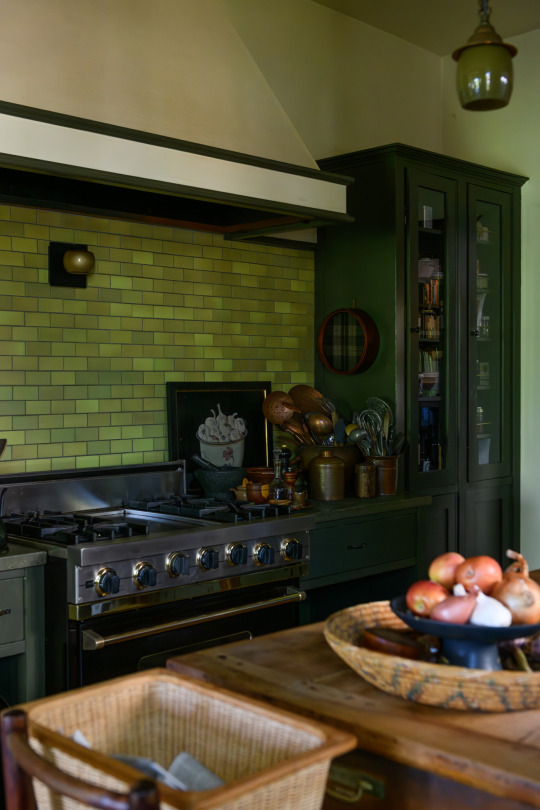
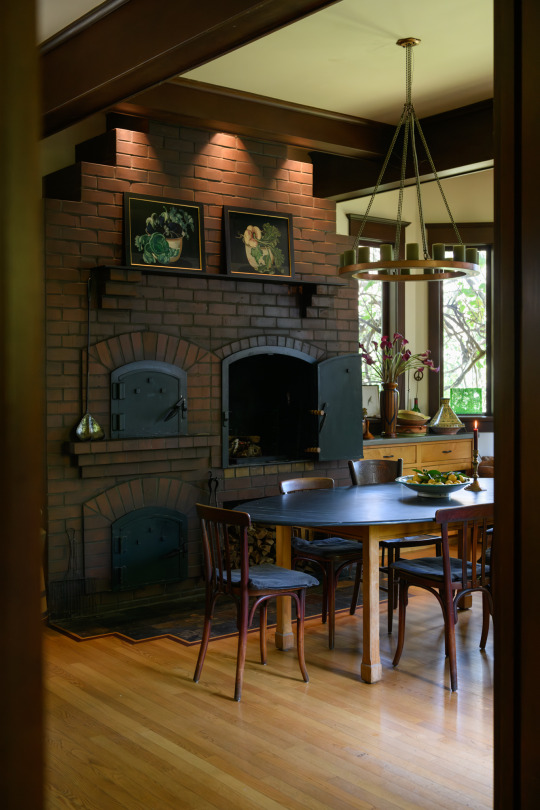
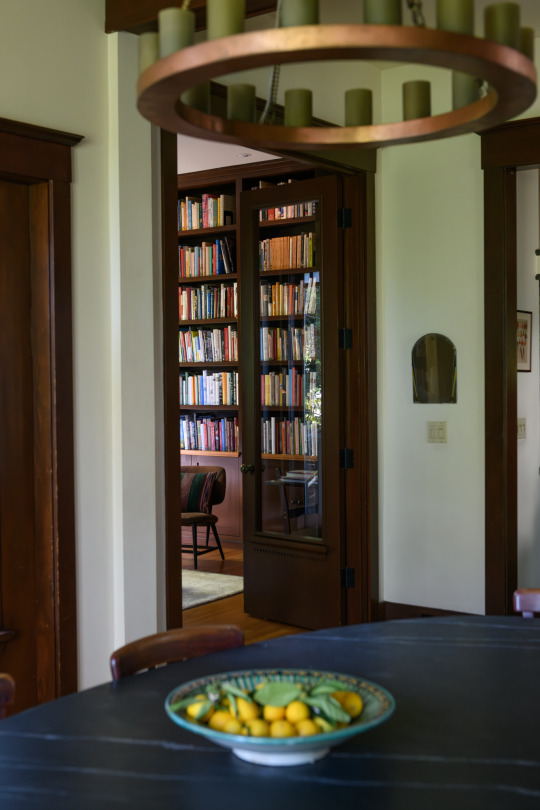
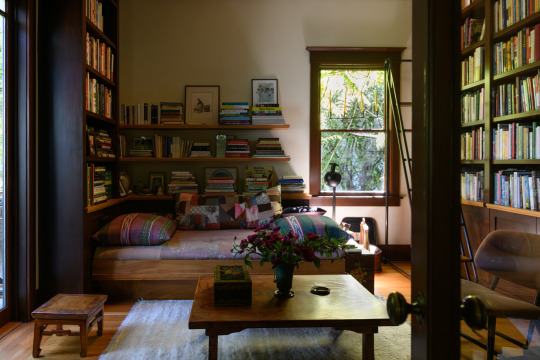
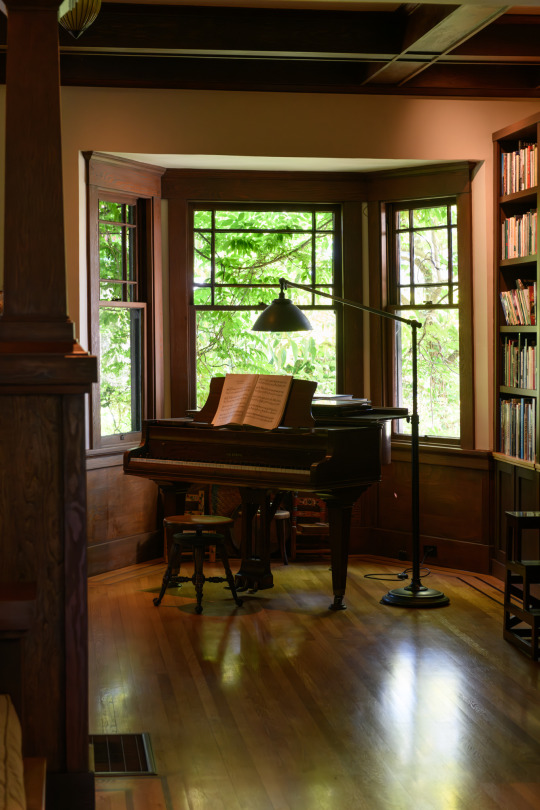
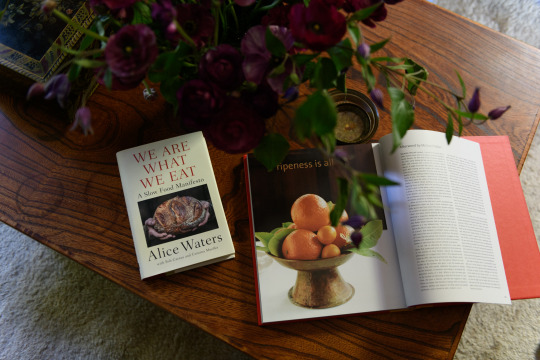
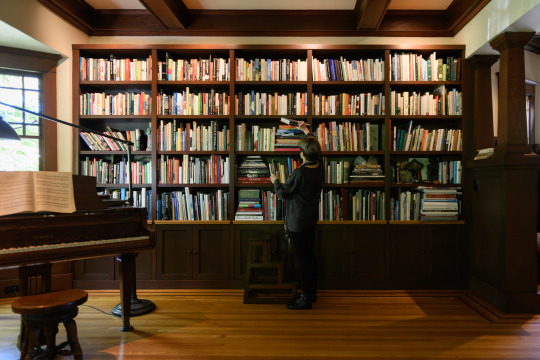
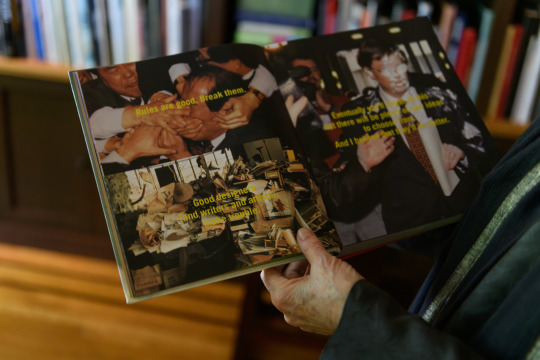
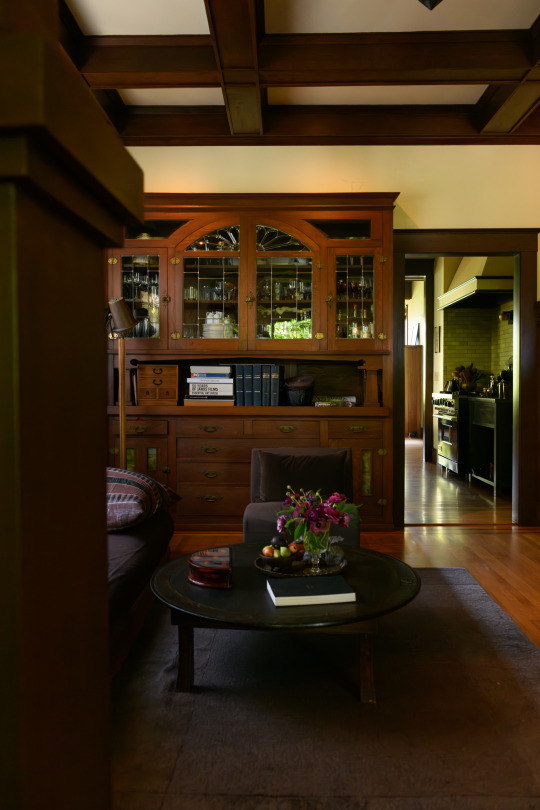
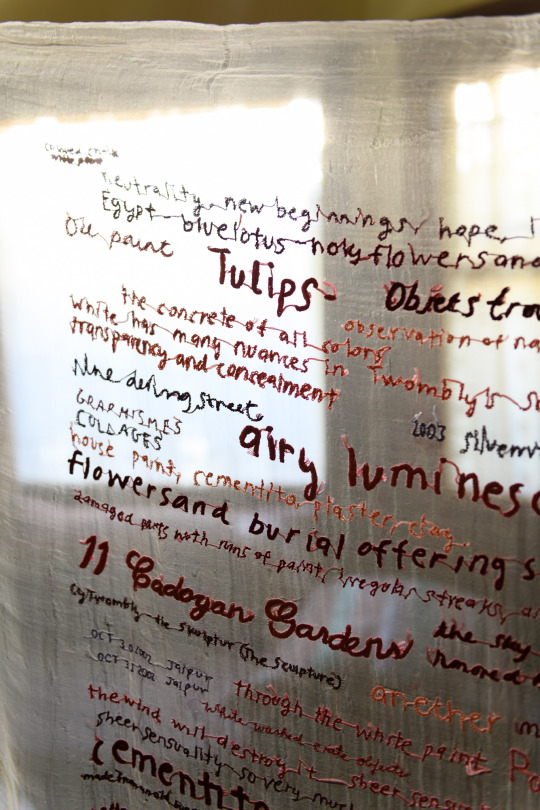
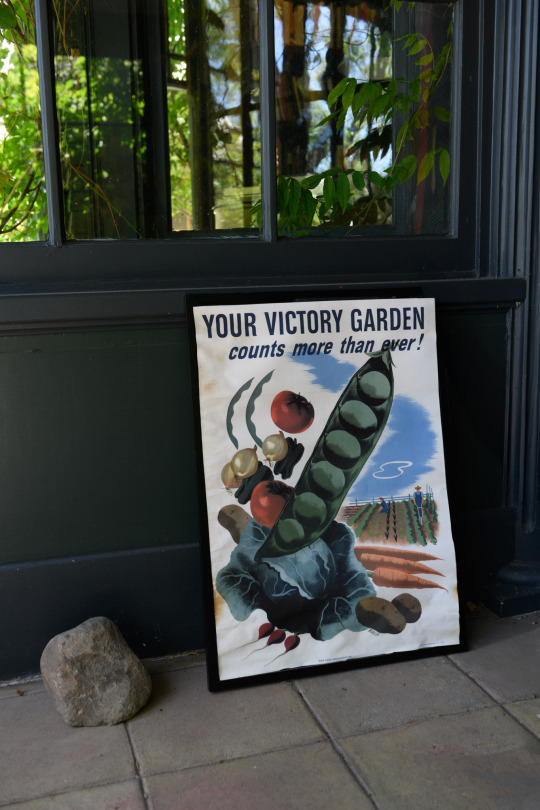
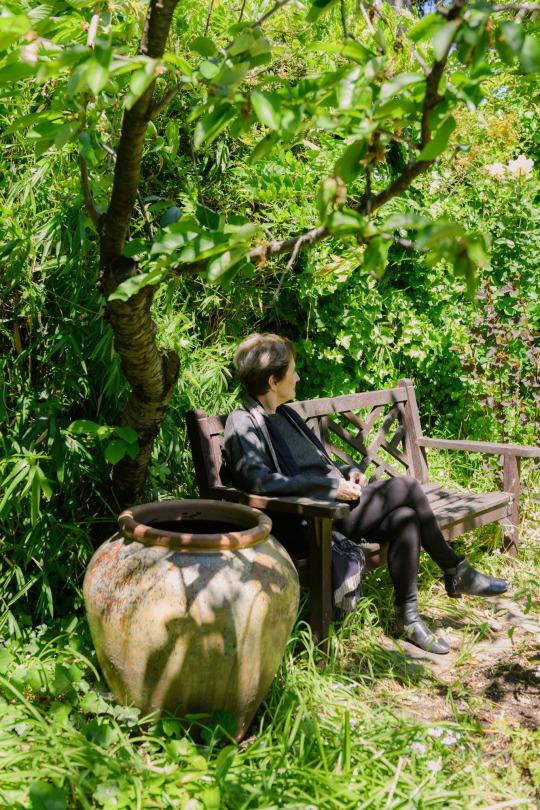
#alice waters#fanny singer#permanent collection#studio ahead#northern california#studioahead#california#san francisco#berkeley#chez panisse#edible gardens
1 note
·
View note
Text

My portrait photo of Alice Waters for the Nob Hill Gazette. The iconic chef, restaurateur, activist and author opened the country’s first farm-to-table restaurant, Chez Panisse, on Berkeley’s Shattuck Avenue in 1971.
Interview of Alice Waters by Janet Reilly in the Nob Hill Gazette. https://www.nobhillgazette.com/people/the_interview/alice-waters-the-pioneering-restauranteur-and-activist-is-as-committed-as-ever/article_5187a0e6-571c-11ee-9ffc-f736c5a85a49.html?fbclid=IwAR07LmUnkG8PCLT_qeh8O1zCS3QW6xxPUhN2gZ7DFThLKrbVKEGswQURzqA
0 notes
Text
#72 | Cook the food you want to eat
“I wanted to create a restaurant that was like a home kitchen—a place that served food as delicious as mother’s cooking.” —Alice Waters. While studying French Cultural Studies at the University of California, Berkeley, Alice Waters traveled to Europe for a year in 1965. She fell in love with the French way of life: the bakery aroma, fresh fruits and vegetables, and a community gathered around…

View On WordPress
#Alice Waters#Cooperative#Create what you want to see#Mission first#No formal training#Restaurant#Start small#Woman
0 notes
Text
"Sorry, We're Closed"
In 2020 the Covid pandemic destroyed many businesses and livelihoods, but none were hit as hard as the hospitality industry. With forced closures due to local restrictions, many restaurants had no choice but to lay off staff and lock their doors. In his documentary “Sorry, We’re Closed,” director Peter Ferriero explores the challenges faced by independent restaurateurs and the personal trauma…
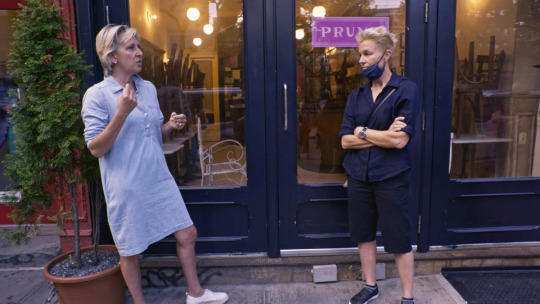
View On WordPress
#Alice Waters#Chris Cosentino#Elizabeth Falkner#Marc Murphy#Nancy Silverton#Perry Cheung#Peter Ferriero
0 notes
Text
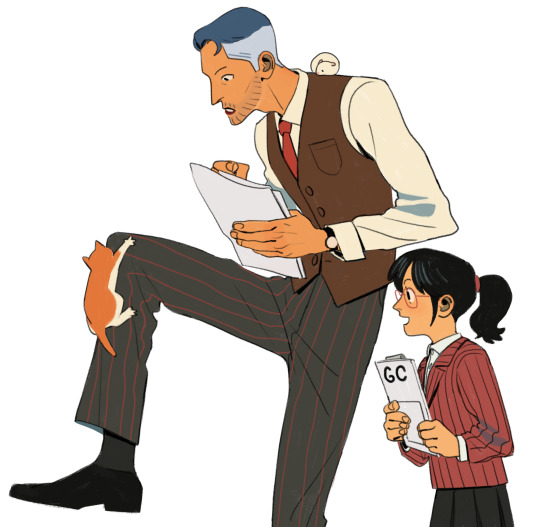
4K notes
·
View notes
Text

.🔥.
#you're in the wind I'm in the water lmaooo#hotd#rhaenyra targaryen#alicent hightower#rhaenicent#myart
5K notes
·
View notes
Text

my fave girls
#rule of rose#clock tower#haunting ground#silent hill#fatal frame#fatal frame maiden of black water#rule of rose jennifer#fanart#sainct's art#american mcgee's alice#alice madness returns#alice asylum#fiona belli#heather mason#alice liddell#yuri kozukata#horror games#survival horror
2K notes
·
View notes
Text

Onion Confit in Pasta with Lettuce, Chez Panisse Vegetables
1 note
·
View note
Photo
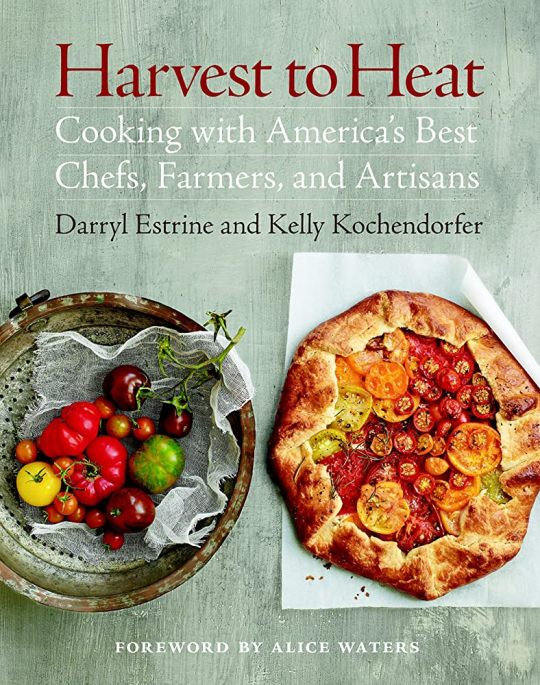
Harvest to Heat | Darryl Estrine and Kelly Kochendorfer
Starters
Blue Cheese Tartine
Herb Gougères
Crab-Stuffed Zucchini Flowers w/Black Truffles
Flint Corn Polenta Cakes w/Heirloom Tomato Salad
Carrot Cannelloni w/Soft Cheese and Pine Nuts
Sautéed Chicken Livers with Smoked Bacon and Roasted Grapes
Dandelion Tart w/Sheep’s Milk Ricotta, Grappa-Soaked Golden Raisins
Maine Sea Scallop Ceviche
Crawfish-Stuffed Deviled Eggs
Salads
Stuffed Cherry Tomatoes w/Zucchini Pistou, Yellow Tomato Vinaigrette
Baby Romaine Salad w/Edamame, Jalapeño Dressing, Yellow Bell Pepper Pipérade
Warm Vegetable Salad
Burrata w/Speck, Peas, and Mint
Chopped Salad w/Corn Vinaigrette and Frico Cheese Crisps
Mesclun w/Shrimp, Avocado, and Creamy Champagne Dressing
Salted Cod Salad w.Preserved Lemons and Arugula Pesto
Crispy Smelts w/Sun Gold Tomatoes and Arugula | Garlic Aioli
Asparagus-Country Ham Bundles w/Toasted Pecans, Citrus Vinaigrette
Soups
Chilled Tomato Soup w/Aged Feta and Olives
Chilled Cucumber-Yogurt Soup w/Candied Fennel, Lemon Gelée
Pumpkin Soup w/Crème Fraiche and Hazelnut Gremolata
Oyster Chowder
Heirloom Bean Soup w/Lobster and Minestrone Vegetables
Crawfish and Corn Stew
Smoky Pork and Apple Soup w/Mustard
Clam and Steuben Bean Soup w/Fennel and Lemon
Main Courses: Meat
Pan-Roasted Beef Rib-Eye w/Fresh Red Currant Pan Sauce
Grilled Skirt Steak and Beef Marrow Bones w/Radish-Herb Salad and Pepper Purée
Braised Short Ribs w/Red Wine
Creole Beef Grillades and Cheese Grits
Roasted Pork Loin w/Roasted Vegetables and Spicy Tomato Sauce
Pork Osso Buco w/Wild Mushrooms and Almond Piccata
Slow-Cooked Pork w/Spanish Paprika and Sweet Spices
Maple-Glazed Pork Belly, Sunny-Side Up Egg, Pickled Chanterelles
Lamb Saddle w/Caramelized Fennel and Wild Mushrooms
Paella w/Lamb Ribs
Roasted Lamb Loin w/Yogurt Eggplant Purée and Merguez Sausage
Herb-Roasted Lamb Rib-Eye w/Wild Preserved Mushrooms, Aromatic Oil
Bison Pastrami “Hash” w/Fingerling Potatoes, Fried Eggs, Grilled Bread
Chicken, Duck and Other Fowl
Roasted Duck Breast w/Farro “Risotto” and Caramelized Figs
Roasted Chicken w/Lemon Thyme and Summer Truffles
Chicken Pot Pie
Poached Chicken w/Morels and Asparagus
Duck Meatballs w/Pomegranate-Orange Glaze, Puréed Parsnips
Apricot-Orange-Glazed Quail
Chicken-Fried Squash with Stuffed Peppers | Cornbread
Fish and Shellfish
Halibut Poached in Pepper Butter w/Roasted Corn Salad
Roasted Trout w/Herb-Champagne Vinaigrette
Fish In Mango Curry Sauce
Lobster Shortcakes w/Vanilla Rum Sauce and Spicy Shallots
Sautéed Shrimp and Hazelnut Romesco
Shrimp w/Tomatoes, Strawberries and Lemon Vinegar
Stir-Fried Fava Shoots w/Shrimp and Caramelized Shallots
Soy Butter-Poached Oysters w/Radishes and Kimchi Juice
Tarts
Crème Fraiche Galette w/Heirloom Tomatoes
Cremini-Filled Grilled Cheese Sandwiches
Lobster Mac and Cheese
Gratin of Bay Scallops w/Jerusalem Artichoke Purée, Crisp Country Ham
Pasta, Grains and Rice
Sweet Potato Gnocchi w/Braised Plums and Crumbly Blue Cheese
Angel Hair Pasta w.Oyster Butter Cream Sauce and Caviar
Ramp Ravioli w/Lemon Zest
Risotto w/Fresh Peas and Pancetta
Tacos w/Greens and Seared Onions | Chipotle Tomatillo Verde Salsa
Sides
Vegetable Succotash w/Spicy Yellow Tomato Coulis
Pearl Onions and Fiddlehead Ferns w/Vanilla Jelly and Onion Sorbet
Roasted Fairytale Eggplant in Chèvre Cream
Curried English Peas and Pickled Swiss Chard
Roasted Beets with Mint
Grilled Broccoli Rabe/Radicchio w/Pancetta Dressing, Soft-Cooked Egg
Sweet Corn Sformato
Butter Bean and Corn Succotash w/Candied Bacon
Brussels Sprouts w/Brown Butter, Bacon, and Sage
Roasted Stuffed Tomatoes w/Farro
Savory Bread Pudding w/Bacon and Farmstead Cheese w/Tomato Jam
Crostini w/Burrata, Marinated Escarole, and Caramelized Shallots
Sweet Potatoes w/Corn, Swiss Chard, and Caramelized Onions
Braised New Potatoes w/Mustard and Leeks
Goat Cheese and Chive Hash Browns
Savory Oats w/Fig Chutney
Forest Mushroom and Naked Barley Pilaf
Carolina Gold Rice with Ramps, Asparagus, and Morels
Desserts
Strawberry Cheesecake w/Balsamic-Roasted Strawberries
Milk Chocolate Semifreddo w/Star Anise Carrot Cake
Honey Mango Upside-Down Cake
Poppy Seed Cake w/Apple Vodka
Individual Chocolate Ganache Cakes
Fromage Blanc Bavarian Cream Cake w/Poached Plums
Goat Cheese Panna Cotta w/Caramelized Figs
Caciotta Cheese Fritters w/Honey
Chocolate Pots de Crème
Snow Eggs w/Green Tea Crème Anglaise
Strawberry-Tomato Gazpacho
Nectarines, Peaches, and Blueberries w/Sabayon
Hudson Manhattan Rye Whiskey Chocolate Truffles
#harvest to heat#darryl estrine#kelly kichendorfer#alice waters#farmers#farm to table#chefs#artisans#TOC
0 notes
Text

Misfits water gun fight! Who will emerge victorious? Only one way to find out
I did this piece for one of the @mairumadevizine prints! It was also done long before the beach chapters in the manga and I really just... balled with their designs
#mairimashita! iruma kun#mairuma#m!ik#mairuma devizine#illustration#fanart#purson soi#asmodeus alice#suzuki iruma#valac clara#gaap goemon#agares picero#allocer schneider#sabnock sabro#shax lied#caim kamui#ix elizabetta#crocell kerori#andro m jazz#id in alt#yuno art#tbh I had quite a lot of fun designing the water guns for this piece hehe#I completely forgot that Iruma should have another shirt under the jacket so uuh fanservice I guess <- disappointed in myself fr#also the alt text is slightly a nightmare I didn't know what to write so I'm gonna give some thoughts about what's going on :')#if I had a nickel for everytime I drew the misfits together as a whole I'd have 3 nickels. They are a hivemind.#the 13 goobers
1K notes
·
View notes